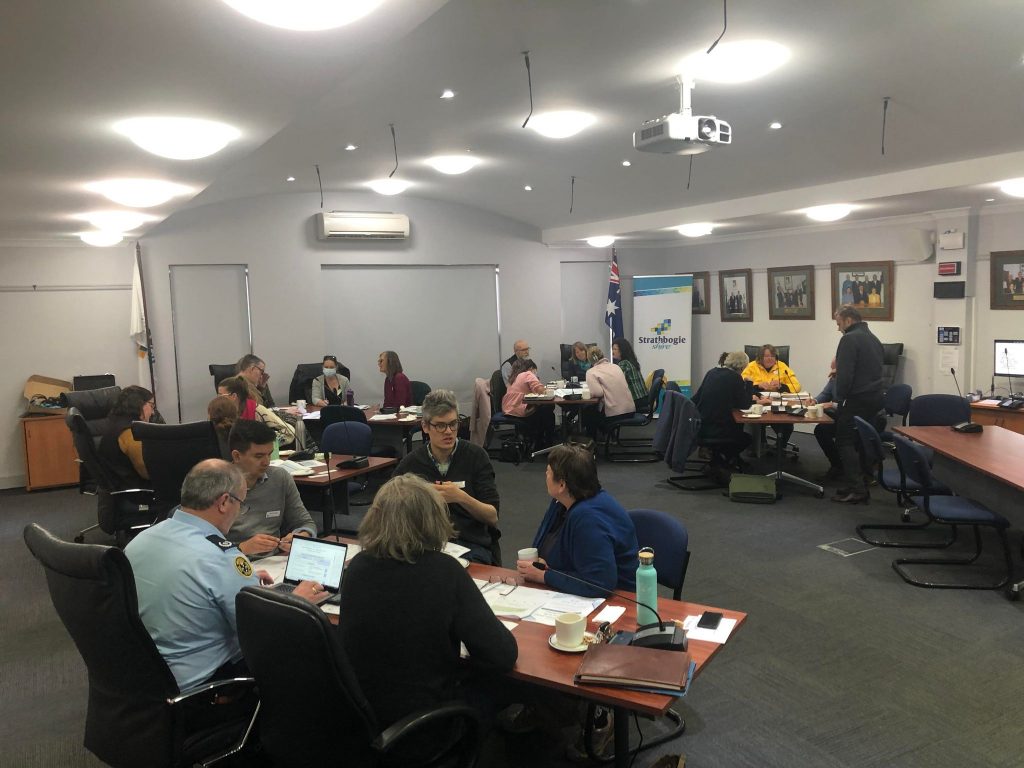People from many different organisations gathered at the SSC Chambers on Thursday 30 June to find themselves in the midst of a highly motivated group from across the GB region with three International attendees. The key discussions centred around climate change threats and mitigation and importantly climate adaptation. The workshop was organised by Michael Spencer from the SRCMN and funded by the GBCMA.
Michael linked the participants to academics and PhD students working on these challenges in the Washington DC, California and Hong Kong. The learnings drew on research from Monash and Melbourne University that examined good governance of climate change adaptation in three countries. Invaluable support was given from Janet Stanley at Melbourne University’s Climate Futures Project.

The key question addressed at the workshop what is good governance for climate change adaptation?
The facilitators steered the day through identifying the problems in four key domains (social, natural, economic and built) and workable adaptation strategies. Most people agreed that adaptation, a proactive approach tended to be lost in the flurry to implement mitigation strategies.
A Taungurung view shared at the workshop was the need for clarity on effective indicators of collaborative governance when working with Traditional Owners. The group was asked: what indicators will show that traditional owners have been heard in policy and in the behaviour of the state actors?
Some interesting insights were brought from the international participants.
Dr Xiaofan Zhao from Hong Kong University had researched pilot resilient cities in China. She described a Low Carbon Pilot City and a Sponge City Pilot that aimed to alleviate flooding and waterlogging through permeable surfaces and green water structures.

Many thanks to Michael Spencer, Janet Stanley and Isabelle Zhu-Maguire who did all the behind the scenes work, for organising such an inspiring session.
Helen McKernan
SRCMN President
